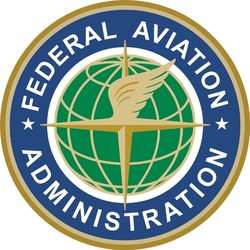Compliance With Stage 3 Noise Levels Mandated by 2015
The long-term FAA bill signed into law by President Obama last
week requires operators of aircraft which meet FAA Stage 2 noise
levels to modify their aircraft to meet Stage 3 noise limits by the
end of 2015. Section 506 prohibits, after December 31, 2015, the
operation within the 48 contiguous states of jets weighing 75,000
pounds or less not already complying with Stage 3 noise levels,
with some exceptions for temporary operations related to moving
aircraft for modification or sale.

The exemption for Stage 2 noise levels was passed by Congress
over 20 years ago, and a coalition of airport managers and
neighbors at some of the nation’s busiest corporate airports
where the older aircraft accounted for an inordinate number of
noise complaints has been working to eliminate the exemption since
2004.
“Managers of airports located in congested metropolitan
areas across the country wanted Congress to help us respond to the
concerns of our neighbors,” said Bob Bogan, Deputy Executive
Director at Morristown Municipal Airport, a founding airport member
of Sound Initiative: A Coalition for Quieter Skies. Morristown is
among the New York metropolitan region’s busiest corporate
airports.
“When Congress passed the ‘Airport Noise and
Capacity Act of 1990’ requiring airlines to phase out noisier
Stage 2 aircraft, it provided some relief to airport neighbors. It
also limited the financial burden on private/corporate aircraft
owners and operators by exempting aircraft weighing less than
75,000 pounds,” Bogan continued. “Although the number
of these aircraft operating in U.S. airspace diminished over the
next two decades, evidence at some airports suggested the remaining
aircraft accounted for a high percentage of total complaints. We
asked Congress to finish what it began in 1990.”
Airports accepting government funding for airport improvement
projects are bound by regulations requiring that they be open and
accessible to all aircraft that can safely operate to and from the
facility, regardless of whether they meet new, modern noise
standards. This law gives aircraft operators of what FAA
registration records indicate are over 850 Stage 2 aircraft until
the end of 2015 to modify their aircraft to meet the new standards
or discontinue use of the aircraft in U.S. airspace. The result
should be fewer noise-related complaints at some of the
nation’s busiest non-commercial airports.

Sound Initiative was organized by airport operators on the front
line of the aircraft noise debate on a daily basis. The effort to
phase out remaining Stage 2 aircraft was viewed as an effort where
airports and their neighbors could work with elected officials
toward a common goal.
“Since we began, coalition members worked with their own
congressional delegations and we made our case before the
leadership of the U.S. House and Senate with responsibility over
aviation issues,” Bogan noted. “While we hoped for
relief sooner, unfortunately our issue became entangled with all
the other issues of a major funding bill. But a core group of
founding members stuck with it and we’re grateful to the
current leadership, as well as those members of Congress with whom
we’ve worked over the past several years, that helped us help
our
neighbors.”
Key members of the coalition included airports run by MASSPORT
(Hanscom Field) and the Port Authority of New York/New Jersey
(Teterboro).
 ANN's Daily Aero-Linx (04.16.24)
ANN's Daily Aero-Linx (04.16.24) Aero-News: Quote of the Day (04.16.24)
Aero-News: Quote of the Day (04.16.24) Airborne 04.10.24: SnF24!, A50 Heritage Reveal, HeliCycle!, Montaer MC-01
Airborne 04.10.24: SnF24!, A50 Heritage Reveal, HeliCycle!, Montaer MC-01 Airborne 04.12.24: SnF24!, G100UL Is Here, Holy Micro, Plane Tags
Airborne 04.12.24: SnF24!, G100UL Is Here, Holy Micro, Plane Tags Airborne-Flight Training 04.17.24: Feds Need Controllers, Spirit Delay, Redbird
Airborne-Flight Training 04.17.24: Feds Need Controllers, Spirit Delay, Redbird




